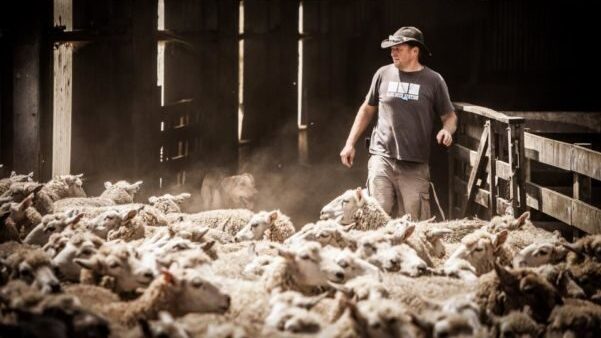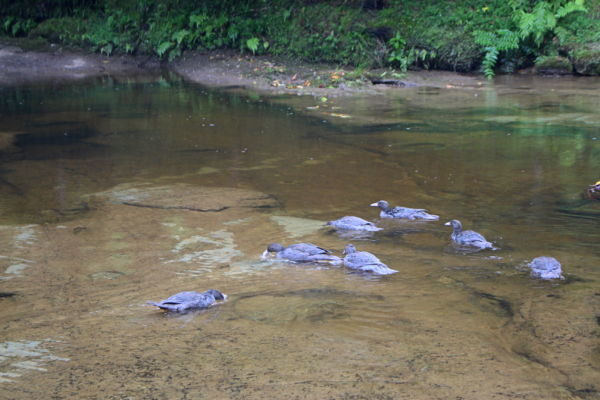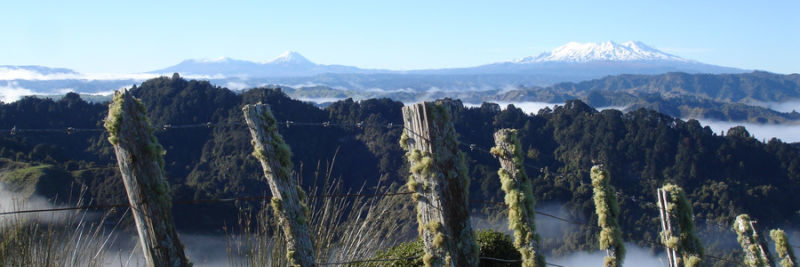At Blue Duck Station, in the Ruapehu District, you’ll find (no prizes for guessing)… blue ducks! In fact Blue Duck Station has one of the highest concentrations of whio and also kiwi, in New Zealand.

“There are about 10 pairs of blue ducks on and around the station,” says owner and manager, Dan Steele. “And there are North Island brown kiwi, bats…”
The station is remote, about an hour away from Taumarunui, the nearest town and only 40km away from the iconic ‘Bridge to Nowhere’. Located on the banks of the Whanganui and Retaruke Rivers, it is surrounded by Whanganui National Park and is a haven for wildlife – a haven that Dan and his team of staff and volunteers have been working to enhance. It is also an iconic and rather special destination for travellers from all over the world, keen to get away from the tourist hotspots and experience the real kiwi outdoors.

“We get about 7,000-8,000 guests through our lodges every year,” says Dan, “and we get them involved in predator control. We tell them that New Zealand is clean and green but there are issues and it needs management. We show them our trapping operation and invite them to go goat-hunting or help with the traplines.”
Blue Duck Station has 50km of traplines of double-set DOC 200 traps, checked and maintained every couple of weeks, mainly by ‘eco-warriors’ – both local and visiting overseas volunteers.
“We also do a little bit of poisoning,” says Dan. “The rats breed quickly with the surrounding rivers and rainforest. We aim to reduce the predator numbers and enhance the blue ducks. If you look after the blue ducks, you’re looking after everything else too.”
Dan’s association with the area began in his university student days when his parents bought the property neighbouring Blue Duck Station in 1993.
“I loved the area,” says Dan. “I’ve always loved the bush, hunting – being part of the environment… out amongst it… In 1999 I returned from travelling the world (the ‘big OE’) and bought the property across the river.”
Blue Duck Station took about 12 years to put together.
“We do farming, tourism and honey. We farm sheep, beef, deer and do guided hunting and there are about 1500 hives on the station. They belong to a two Tauranga beekeepers and we share the honey.”
Blue ducks have always been part of the remote station.
“It’s pretty special to see blue ducks in the streams,” says Dan. “I learnt more about them from DOC. I would see clutches of ducklings, but then they would all disappear. Originally I saw a wild cat. Then when I talked to Jim Campbell at DOC Whanganui, he said that stoats are a problem too, so we started putting traps out.”

Nowadays Dan is leasing his parents’ station and, as his parents reach retirement age, is amalgamating the two properties. Together they make up 2,800 hectares.
“The surrounding bush is regenerating,” says Dan. “Some of it should never have been pasture. It’s better as bush. Having beehives on the station means that we can harvest honey, while looking after the environment. We can use the native forest more sustainably for things like honey and natural health products – traditional medicines like using kawakawa for example.”
It’s all part of a vision Dan has for a more sustainable farming future.
“Farming and conservation are at loggerheads a bit at the moment,” Dan says. “We need a strategy for what New Zealand should be. We’re lacking long-term strategies and leadership.”
His passion for finding those long-term strategies and incorporating conservation values into farming, led to Dan being awarded a Nuffield Scholarship in 2015. The aim of his travel, funded by the scholarship, was to learn more about adding value to farming through environmental management.
His enthusiasm for the subject is huge.
“The predator free initiative is fantastic,” he says. “It’s something we can get our teeth into and aspire to.”
Some of Blue Duck Station’s overseas guests have heard about Predator Free NZ even before Dan gets to tell them about it.
“I had guests from Holland asking me about predator free and getting rid of all the rats,” he says. “I believe we should try to turn New Zealand into the biggest conservation operation on Earth! We’ve got the Pacific Ocean for biosecurity. We’re world leaders in island sanctuaries. Let’s take it to another level. Let’s bring aspiring people to New Zealand and become a knowledge centre – a world leader in eradicating pests. That in turn will attract other, very intelligent people to come here because they want to help. Trapping alone won’t get us there,” he says, “We need to start using our universities etc as (predator free) knowledge centres.”
Here’s hoping Dan’s enthusiasm is contagious – not just for his overseas guests and visiting volunteers, but for everyday New Zealanders too.

